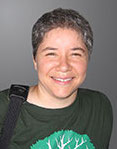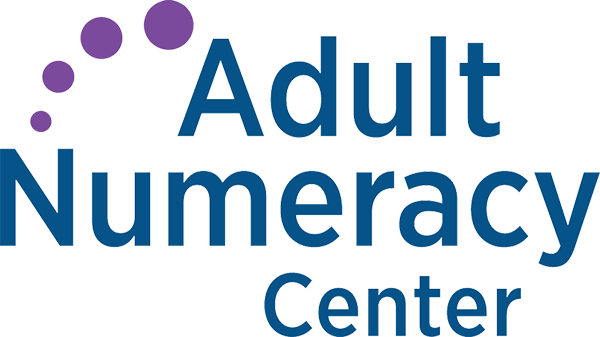Having Realistic Expectations
by Sarah Lonberg-Lew
As a math teacher in adult education classrooms, I have never had the experience of having a class of students who had similar educational backgrounds and ability levels. In fact, I don’t think I’ve ever met a math teacher of adult learners who has had that experience. And yet, when I plan my curriculum and lessons, I write one set of learning objectives for all my students. But how can I expect them to arrive at the same place at the end of a lesson when their starting points are so vastly different? It feels unfair to my students, as if I am asking them to run a race but giving some a head start and asking others to carry heavy weights. And those students at the back, the ones who have struggled the most to get here, who have had the fewest opportunities to learn – they are the ones who have to work the hardest to master the objectives.
Should I then lower my expectations for those students? Should I write them a different set of learning objectives, possibly sending them the message that I don’t believe they are as capable as their classmates? I think the answer is these students should get the same lesson as the others with the same learning objectives and the same high expectations regarding effort and engagement, but that it is a disservice to them and to me as their teacher to hold the expectation that they will arrive at the same level of mastery as their peers. It is not realistic, and neither I nor the students should be pinning our ideas of what it means to be successful to something that is not realistic.
I believe it is important to be honest with my students. If I pretend that all it takes is grit and effort to move from fourth grade level skills to college readiness in one semester, then if my struggling students fail to achieve that, they may believe it is because they didn’t try hard enough. The truth is that it takes children nine years to go from fourth grade to twelfth and that’s when their education is uninterrupted and when being a student is their only job. Many of our adult learners can move faster than that, but it is still a huge task and one that could take years.
I believe in my students. I want them to believe in themselves and one way I can help them do that is by making sure we all have realistic expectations. When my students get discouraged because they don’t understand something as well or don’t get an answer as fast as the person sitting next to them, I believe it is important to acknowledge that they did not start at the same place, that they have had their own unique challenges and that it doesn’t make sense, in light of that, to expect that they would arrive at the same place.
A student handed me an assignment the other day and said, “I don’t think I did a very good job.” I asked her, “Did you do your best?” She said she had. I asked again, “Did you give this your absolute best effort?” She said she had. “Then,” I said, “it has to be good enough. Nobody can do better than their best. How could I ask for more?” I told her I’d give her some feedback and help her improve – we can always make our best even better – but that she should feel proud of her effort and accomplishment.
Because I expect my students to address the same learning objectives at different levels, I strive to provide multiple entry points to the material by differentiating instruction as best I can. I try to create a classroom experience where everyone can be challenged and no one feels bored or overwhelmed. I seek out new methods and strategies to bring my classroom closer to this ideal. But differentiating instruction is hard. It sometimes feels impossible. I give it my best effort and know that in the moment I can’t do better than my best, but I can keep working to make my best even better.
 Sarah Lonberg-Lew has been teaching and tutoring math in one form or another since college. She has worked with students ranging in age from 7 to 70, but currently focuses on adult basic education and high school equivalency. She teaches in adult education programs in both Gloucester and Danvers, MA. Sarah’s work with the SABES numeracy team includes facilitating trainings and assisting programs with curriculum development. She is also an actively involved member of the Adult Numeracy Network.
Sarah Lonberg-Lew has been teaching and tutoring math in one form or another since college. She has worked with students ranging in age from 7 to 70, but currently focuses on adult basic education and high school equivalency. She teaches in adult education programs in both Gloucester and Danvers, MA. Sarah’s work with the SABES numeracy team includes facilitating trainings and assisting programs with curriculum development. She is also an actively involved member of the Adult Numeracy Network.
